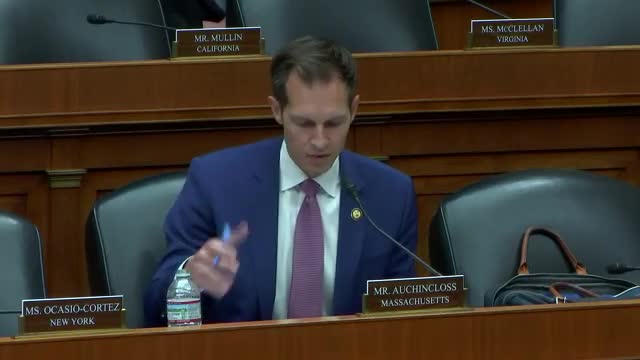
This article was created by AI using a video recording of the meeting. It summarizes the key points discussed, but for full details and context, please refer to the video of the full meeting. Link to Full Meeting
A significant point raised during the hearing was the impact of tariffs on electricity imports from Canada, which New England relies on heavily. Witnesses pointed out that the Trump administration's policies, including tariffs and the cancellation of offshore wind contracts, have created uncertainty in the energy market. This uncertainty could cost New England ratepayers approximately $60 million annually if tariffs reach 25%. While the immediate reliability of the grid remains intact, the resources and time spent navigating these tariffs divert attention from more pressing energy needs.
The hearing also underscored New England's dependence on liquefied natural gas (LNG), primarily sourced from Trinidad and Tobago. This reliance exposes the region to global price fluctuations, as demonstrated by the recent spike in LNG prices following geopolitical events like the invasion of Ukraine. Experts noted that Massachusetts lacks control over its energy future, emphasizing the need for diversification in energy sources.
Proposals to enhance energy reliability included increasing the use of offshore wind, which could provide a consistent energy supply during peak demand periods in winter. Additionally, the potential for dual-fueling systems was discussed, which would allow gas-only resources to switch to alternative fuels during cold weather, thereby alleviating some of the constraints posed by gas pipeline limitations.
The hearing also touched on the challenges of transitioning to renewable energy sources. Representatives from the New York Independent System Operator (ISO) expressed concerns about the state's aggressive shift away from natural gas towards renewables like wind and solar. They highlighted the current lack of commercially available technologies that can provide reliable, dispatchable energy at scale, which is essential for maintaining grid stability, especially during extreme weather events.
In conclusion, the Energy Subcommittee Hearing revealed the complexities surrounding regional grid reliability in New England. As the region navigates the challenges of energy imports, market uncertainties, and the transition to renewable sources, stakeholders must consider a balanced approach that ensures both reliability and sustainability. The discussions set the stage for future policy considerations and underscore the importance of strategic planning in addressing the evolving energy landscape.
Converted from Energy Subcommittee Hearing: Keeping the Lights On: Examining the State of Regional Grid Reliability meeting on March 26, 2025
Link to Full Meeting
Comments
View full meeting
This article is based on a recent meeting—watch the full video and explore the complete transcript for deeper insights into the discussion.
View full meeting